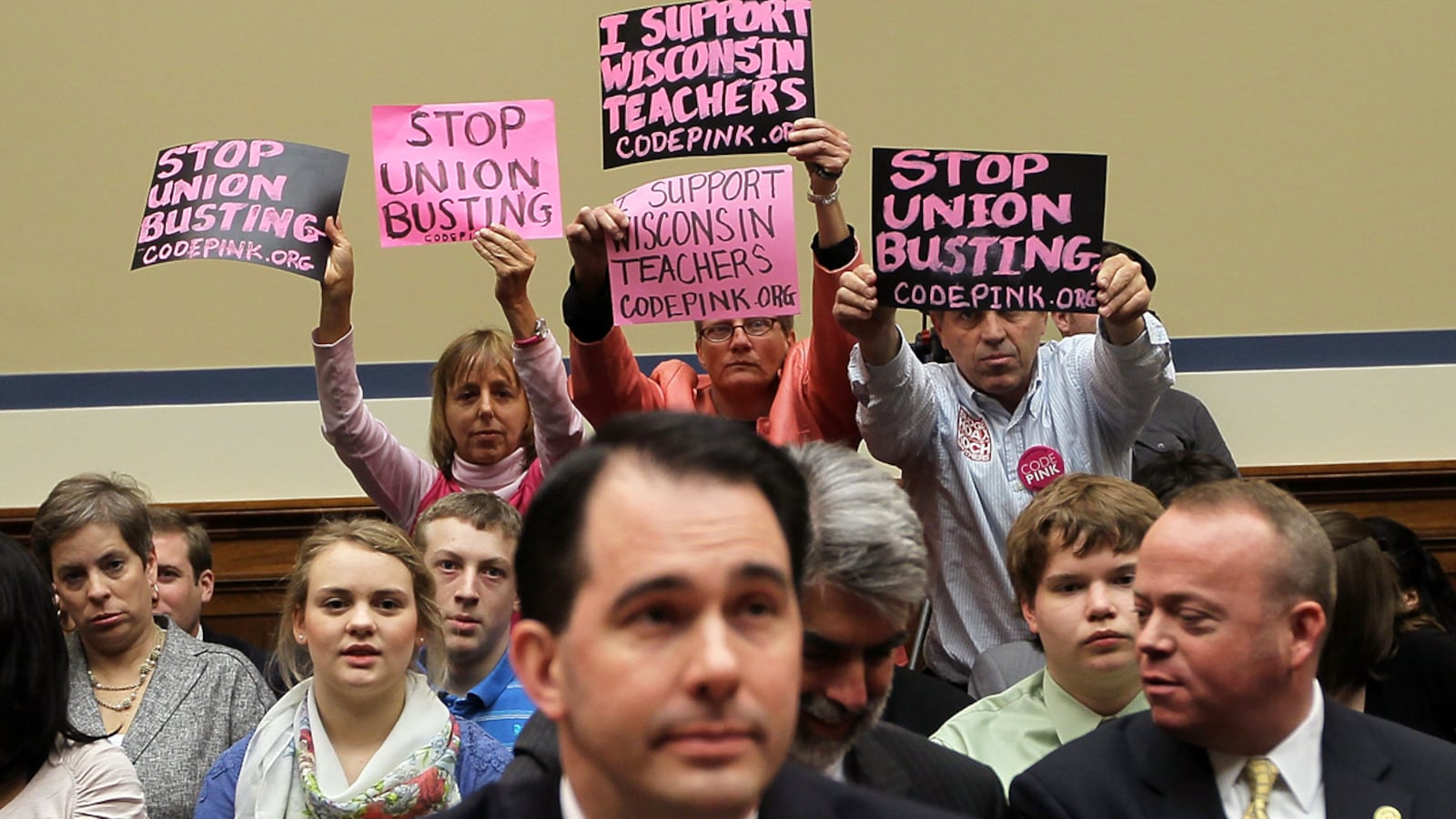Tuesday was a bad night for the labor movement. In Wisconsin, with only token opposition, incumbent Gov. Scott Walker got 97 percent of the vote in the Republican primary, and almost as many votes were cast for him than in the entire Democratic primary combined. This is a bad sign for Democrats. The percentage of the vote Walker received seemed more appropriate for Mugabe than the former county executive of Milwaukee.
Wisconsin Democrats were supposed to be enthusiastic about taking down Walker. The labor movement in the United States put a bulls-eye on the governor and labeled him public enemy No. 1. Walker tried to break public-employee unions, has been the subject of an ongoing corruption investigation in Milwaukee County, and has made himself the most divisive figure in Wisconsin politics since Joe McCarthy was brandishing lists of communists. But in Tuesday’s primary, Republicans streamed out to cast a symbolic vote for him.
The 97 percent of the vote Walker received may seem insignificant. After all, he faced only one token candidate.
Then again, so did Barack Obama in West Virginia, and he got about only 60 percent of the vote running against a federal inmate. Mitt Romney didn’t fare much better, getting between 65 percent and 69 percent of the vote in all three states holding Republican primaries on Tuesday.
By contrast, Tom Barrett, the former mayor of Milwaukee and Walker’s 2010 opponent, won by a comfortable margin of 58 percent to 34 percent against his principal opponent, former Dane County executive Kathleen Falk, but with a turnout that lagged behind the GOP race for much of the evening. The favored Democrats in the recall attempts for lieutenant governor and the four state Senate recalls did about the same as Barrett, despite only nominal opposition.

Even more disturbing for Democrats was that Barrett won despite the overwhelming opposition of the labor movement, which backed Falk as the more progressive candidate. Barrett had only entered the race at the end of March and still managed to overwhelm months of efforts on behalf of Falk by organized labor, which had anointed her as its chosen candidate when the Walker recall movement was still in its infancy.
These weak numbers stand in stark contrast to the estimated 900,000 voters who signed recall petitions and are a disturbing sign for Democrats in a general-election contest June 5 that all sides believe will focus on base enthusiasm rather than swing voters. Few are undecided in a fight that has dragged on without pause for nearly 18 months and included tens of thousands of Wisconsinites occupying the state capitol.
Democrats may try to console themselves that the primary just wasn’t that exciting. A primary is not a general election, and neither Barrett nor Falk were considered strong candidates. Both had lost two statewide elections, with Barrett holding the slightest advantage in electability for having made it to the general election in one of them. Then again, an unopposed primary is fair less exciting than one that is simply dull. The fact that Walker turned out so many Republicans shows a significant enthusiasm gap in June’s coming recall.
The turnout Tuesday should serve as an alarm bell to Democrats, who have been frenetically organizing in Wisconsin for months. Defeating Walker in the June recall was supposed to be a precursor to reelecting Obama in November. Instead, the labor movement may lose its all-in bet in Wisconsin and prove itself, and Obama, even weaker than believed.






